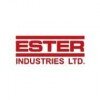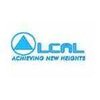Filter interviews by
Bodal Chemicals Chemical Engineer Interview Questions and Answers
Bodal Chemicals Chemical Engineer Interview Experiences
1 interview found
Most of general mathematical type questions
(2 Questions)
- Q1. What is heat transfer?
- Ans.
Heat transfer is the process of energy moving from a warmer object to a cooler object.
Heat transfer can occur through conduction, convection, or radiation.
Conduction is the transfer of heat through direct contact between materials, like a metal spoon heating up in hot soup.
Convection is the transfer of heat through the movement of fluids, like boiling water in a pot.
Radiation is the transfer of heat through electromagn...
- Q2. What 2 law of thermodynamics tell us?
- Ans.
The two laws of thermodynamics are the first law, which states that energy cannot be created or destroyed, only transferred or converted, and the second law, which states that the entropy of an isolated system always increases over time.
First law of thermodynamics: Energy cannot be created or destroyed, only transferred or converted.
Second law of thermodynamics: The entropy of an isolated system always increases over t...
Top trending discussions






Interview questions from similar companies

Senior Engineer Interview Questions & Answers
Chemfab Alkalisposted on 23 Mar 2025
I appeared for an interview before Mar 2024, where I was asked the following questions.
- Q1. Can you tell me about yourself?
- Q2. What is the working principle and operational mechanism of a level transmitter?
- Ans.
A level transmitter measures the level of liquids or solids in a container using various principles like hydrostatic pressure or capacitance.
Hydrostatic Pressure: Measures pressure at the bottom of a tank to determine liquid level.
Capacitance: Uses changes in capacitance between probes to measure level.
Ultrasonic: Sends ultrasonic waves to the surface and measures the time taken for the echo to return.
Radar: Uses micro...
- Q3. What is the single line diagram of an electrical system?
- Ans.
A single line diagram (SLD) is a simplified representation of an electrical system showing components and their connections.
Represents electrical components like transformers, circuit breakers, and loads in a single line.
Used for system analysis, design, and troubleshooting.
Example: A power distribution system showing the main feeder, sub-feeders, and loads.
Helps in understanding the flow of electricity and identifying
- Q4. Give 2 reasons why we need to select you
- Ans.
I bring extensive experience and a proven track record of delivering innovative solutions that drive efficiency and success.
Proven Expertise: I have over 10 years of experience in software development, leading projects that increased efficiency by 30%.
Leadership Skills: I successfully managed a team of engineers on a project that delivered a product 2 months ahead of schedule.
- Q5. Why you changed more companies within short period
- Ans.
I changed companies to seek growth, new challenges, and align with my career goals in a rapidly evolving tech landscape.
Pursued opportunities that offered better career advancement, such as a role at a startup that allowed me to lead projects.
Transitioned to companies with innovative technologies that matched my interests, like moving to a firm specializing in AI.
Some changes were due to company restructuring or layoff...

Associate Engineer Interview Questions & Answers
Garware Hi-Tech Filmsposted on 19 Feb 2023
I applied via Naukri.com and was interviewed before Feb 2022. There were 2 interview rounds.

(2 Questions)
- Q1. What is your strength
- Q2. Where are you from ??
Interview Preparation Tips
Maintenance engineer should be practically strong

I applied via Campus Placement
Random IQ tests conducted. It is based on the time we take to answer each question.
(1 Question)
- Q1. HR and Technical interview were conducted in single round.
Interview Preparation Tips

Project Engineer Interview Questions & Answers
Tamilnadu Petroproductsposted on 13 Mar 2025
I appeared for an interview before Mar 2024, where I was asked the following questions.
- Q1. Self introduction
- Q2. Basic questions
Interview Preparation Tips

Project Engineer Interview Questions & Answers
Tamilnadu Petroproductsposted on 2 Feb 2024
I applied via Naukri.com and was interviewed before Feb 2023. There were 2 interview rounds.
(1 Question)
- Q1. More technical , and related to oil and gas
(1 Question)
- Q1. Related to job and development

Junior Engineer Interview Questions & Answers
Tamilnadu Petroproductsposted on 14 May 2024
I applied via Walk-in and was interviewed before May 2023. There were 2 interview rounds.
They gave one set of questions paper 30marks
(1 Question)
- Q1. It's also same as attitude.50 marks questions they gave

I applied via Naukri.com and was interviewed in Nov 2022. There were 4 interview rounds.

(4 Questions)
- Q1. 1. Your current organization profile
- Q2. 2. Your job role, Material balance for reactions
- Q3. 3. How will u find efficiency of Heat exchanger
- Ans.
Efficiency of heat exchanger can be found by calculating the heat transfer rate and comparing it with the maximum possible heat transfer rate.
Calculate the heat transfer rate using the formula Q = U*A*ΔTlm, where U is the overall heat transfer coefficient, A is the heat transfer area, and ΔTlm is the log mean temperature difference.
Calculate the maximum possible heat transfer rate using the formula Qmax = m*Cp*ΔT, wher...
- Q4. 4. How will u handle emergency situation
(2 Questions)
- Q1. 1. Brief summary about your profile
- Q2. 2. Important interlocks & Flare systems
- Ans.
Interlocks and flare systems are crucial for safety in process engineering.
Interlocks prevent equipment from operating outside of safe parameters.
Flare systems are used to safely dispose of excess or dangerous gases.
Interlocks and flare systems work together to prevent accidents and protect personnel.
Examples of interlocks include pressure switches, temperature sensors, and flow meters.
Examples of flare systems include...
(2 Questions)
- Q1. 1. Personal details & company policy explanation
- Q2. 2. Salary negotiation
Interview Preparation Tips

(1 Question)
- Q1. Why chemical engineering
- Ans.
Passion for applying scientific principles to solve real-world problems in industries like pharmaceuticals, energy, and environmental protection.
Fascination with the intersection of chemistry, physics, and mathematics
Desire to innovate and optimize processes in industries such as pharmaceuticals, energy, and environmental protection
Interest in tackling global challenges like climate change and sustainable energy produc...

I applied via Referral and was interviewed before Sep 2021. There were 2 interview rounds.

(2 Questions)
- Q1. Generic questions about CV
- Q2. Skill specific correlations
- Ans.
Skill specific correlations refer to the relationship between different skills and how they impact each other.
Identifying skill correlations can help in designing effective training programs.
For example, communication skills may be correlated with leadership skills.
Analytical skills may be correlated with problem-solving skills.
Understanding skill correlations can also help in career planning and development.
For instan...
Interview Preparation Tips
Skills evaluated in this interview
Bodal Chemicals Interview FAQs
Tell us how to improve this page.
Bodal Chemicals Interviews By Designations
- Bodal Chemicals Senior Engineer Mechanical Interview Questions
- Bodal Chemicals Assistant Engineer Interview Questions
- Bodal Chemicals Chemist Lab Technician Interview Questions
- Bodal Chemicals Trainee Chemical Engineer Interview Questions
- Bodal Chemicals Chemical Engineer Interview Questions
- Bodal Chemicals IT Executive Interview Questions
- Bodal Chemicals Instrument Engineer Interview Questions
- Bodal Chemicals Senior Executive Interview Questions
- Show more
Interview Questions for Popular Designations
- Diploma Chemical Engineer Interview Questions
- Chemical Process Engineer Interview Questions
- Trainee Chemical Engineer Interview Questions
- Chemical Plant Operator Interview Questions
- Junior Engineer - Chemical Interview Questions
- Chemist Interview Questions
- Chemical Analyst Interview Questions
- Production Chemist Interview Questions
- Show more
Bodal Chemicals Chemical Engineer Interview Process
based on 1 interview
Interview experience
Interview Questions from Similar Companies
Bodal Chemicals Chemical Engineer Reviews and Ratings
based on 1 review
Rating in categories
|
Electrical Engineer
34
salaries
| ₹1.2 L/yr - ₹3.5 L/yr |
|
Plant Operator
28
salaries
| ₹1 L/yr - ₹3 L/yr |
|
QC Chemist
22
salaries
| ₹1.1 L/yr - ₹3.8 L/yr |
|
Assistant Manager
21
salaries
| ₹4.5 L/yr - ₹13.5 L/yr |
|
Instrumentation Technician
21
salaries
| ₹1.6 L/yr - ₹2.4 L/yr |

Gulf Oil Lubricants

Garware Hi-Tech Films

Jubilant Industries

Ester Industries
- Home >
- Interviews >
- Bodal Chemicals Interview Questions >
- Bodal Chemicals Chemical Engineer Interview Questions










